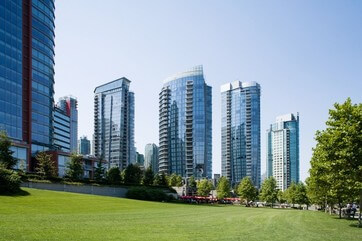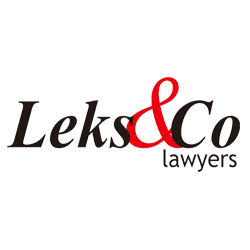 In Indonesia the property conglomorates has been intensive in developing the superblock. There is a Lippo Group that builds Kemang Village and St. Moritz. We also have Ciputra Group that builds Ciputra World, in Surabaya and Jakarta. We have Agung Podomoro Group that builds Podomoro City in Tanjung Duren area and there are so many other projects that are undergoing now.
In Indonesia the property conglomorates has been intensive in developing the superblock. There is a Lippo Group that builds Kemang Village and St. Moritz. We also have Ciputra Group that builds Ciputra World, in Surabaya and Jakarta. We have Agung Podomoro Group that builds Podomoro City in Tanjung Duren area and there are so many other projects that are undergoing now.
What is the meaning of superblock? In the dictionary.com, superblock is defined as an area of city land larger than the usual block, treated according to a unified plan and generally closed to vehicular through traffic. Accordingly, there are three aspects for a superblock (i) large area, (ii) unified plan (iii) strategically located.
We understand from the recent developments, the superblock concept usually consists of commercial area, residential area, and a hotel. However, now we have seen superblock development that is also providing a hospital and educational premises. Accordingly, the property developer in Indonesia is enhancing the quality and the completeness of the superblock project. This is also because of the improvement of individual needs, especially for people of large cities in Indonesia.
This article will discuss the legal aspects of strata title superblock development under Indonesian law.
The Strata Title and Land under Indonesia Law
All strata title projects are basically governed by Law No. 16 of 1985 and Government Regulation No. 44 of 1988. There is a principle difference between a strata title and non strata title building. Whether it is one strata title building or a superblock development, there are three important aspects on a strata title projects i.e common land (tanah bersama), common equipment (bagian bersama) and common facility (benda bersama). These concepts only apply on strata title project.
According to the law, common land is a piece of land used under an undivided common right, which is an apartment building over it, determined in accordance with the building license. By this concept, all strata title holders have their share ownership of the land. The share ownership is calculated based on the proportional comparative value of each of the area of the strata title unit. The share ownership of strata title unit does not only include a proportional value of a common land, but also on the share ownership of common equipment and common facility.
Common equipment is a part of apartment that is undividedly owned for common use, in a unified function of an apartment. The examples of this are foundation, column, wall, floor, block, roof, stair, lift, pipes, electricity system, gas, telecommunication and public area of an apartment.
Common facility is a thing that does not form part of an apartment, but jointly owned undividedly, for common use. The examples of this are park, landscaping, social building, religious building, parking space, and playground.
Almost all of the superblock development projects are built based on this strata title concept. Therefore, the legal concept of common land, common equipment and common facility apply on a superblock project. The concept does not only apply on an strata title apartment, but also on a strata title building that is used for commercial purpose such as mall, office building, or hotel.
What about the land? The law states that an apartment (or a strata title project) can only be built over the land of right to own (hak milik), right to build (hak guna bangunan), right to use of government land (hak pakai) or right to manage (hak pengelolaan) in accordance with the prevailing laws. According to this, an apartment cannot be built on a land of right to cultivate (hak guna usaha) or on a leased land.
Who can be the owner? The owner of an apartment consists of individual and legal entity based on the law of agrarian. According to the law, an individual can have a land of right to own, right to build, right to cultivate, right to use and a leased land. A legal entity can have a land of right to build, right to cultivate, right to use and a leased land. Accordingly, a foreign individual can only have a strata title unit if it is built over the land of right to use. This is a strict limitation to foreign individual imposed by Indonesian agrarian law. Even though the tendency to revise the regulation is getting stronger, this rule is still applied until now.
The Legal Aspects of Superblock
As mentioned before, superblock project consists of various functions of premises. When we talk about the function of the land, it boils down to the license to use the land by the government. In a superblock project, the license to use the land will be comprehensively stated e.g for residential, commercial and other supporting commercial functions. This is a principle license before a developer can start to build the project.
On a superblock project, how can we identify the common land? On this regard, it depends on the site plan of the developer. Do they want to build a project with a basement underneath connected each other to the other tower, or they build each tower separately. In my personal view, if a developer builds a project with a connected basement with each tower, the common land will be the full plot of land that is utilized for the project. However, if a developer builds a separate tower in one complex, there may be some plots of common land in one complex; but still; the developer is obliged to provide access for the tenant to walk around inside the complex.
On the basement side, can we call it as a strata title unit? Yes, we can. According to law, a strata title unit can be on the land, above the land, underneath, or part underneath and part above the land. Thus, it is clear that a strata title certificate can be issued on the basement of the strata title building.
On the management side, when it comes to a superblock project, each tower, according to its function, may have each building manager to manage and operate the tower or the building in the complex. A tenant association (perhimpunan penghuni) is a legal entity who has the right to appoint or to choose a building manager. Under one common land, there can be only one tenant association.
Closing Remarks
Indonesia indeed has to have more comprehensive laws governing the Superblock, as there is a dire necessity. The current laws and regulations although have not caused vacuum, however still lacking. The government has to intensify in producing the appropriate laws and regulations so to give certainty to the business and comfort to customers.
Eddy M. Leks




